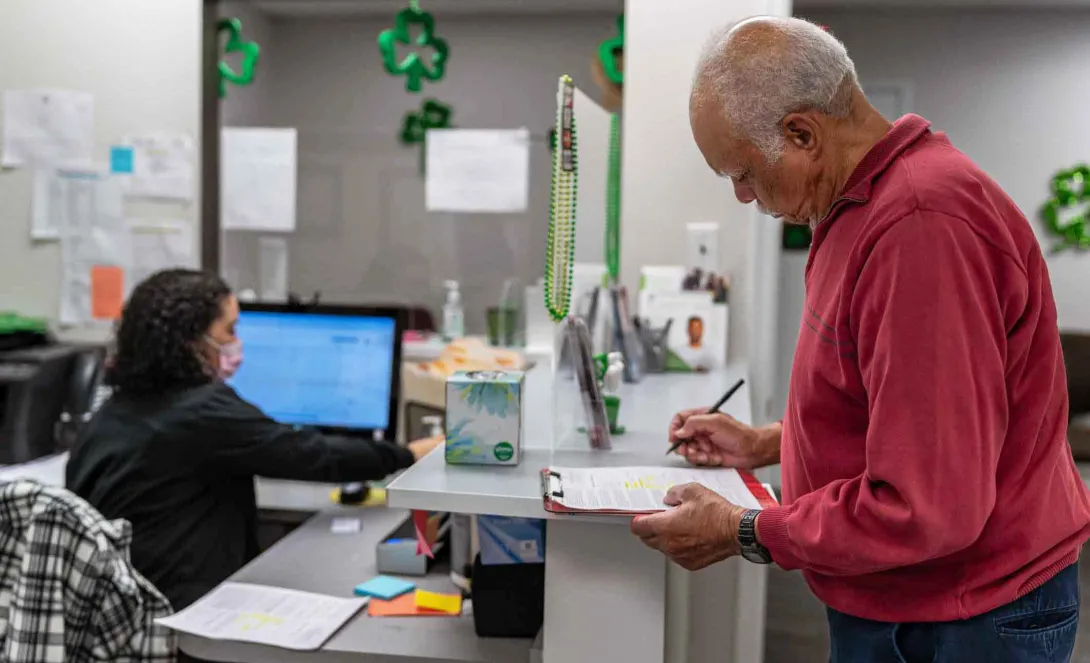
Photo: Fly View Productions/Getty Images
Congress needs to act to bring needed reforms into the 340B to make revenue from the drug pricing program more transparent and to ensure patients are benefiting from the discounts, according to a report released by Sen. Bill Cassidy, R-La., chairman of the Senate Health, Education, Labor, and Pensions (HELP) Committee.
The Senate investigation set out to determine how covered entities spend 340B revenue due to reports that certain 340B covered entities realize record-setting profits with no transparency surrounding if and how much of their 340B revenue directly benefits patients, the report said.
Information was sought from eight participants in the 340B program, including Bon Secours Mercy Health, Cleveland Clinic, Sun River Health and Yakima Valley Farm Workers Clinic; contract pharmacies CVS Health and Walgreens; and drug manufacturers Eli Lilly and Amgen. In addition, Johnson & Johnson voluntarily submitted data, the report said.
The report found that hospitals, contract pharmacies and others make significant revenue from the 340B program, but questions whether low income or uninsured patients benefit from increased charity care or lower costs.
"This investigation underscores that there are transparency and oversight concerns that prevent 340B discounts from translating to better access or lower costs for patients. Congress needs to act to bring much-needed reform to the 340B Program," the report said.
This includes more transparency on how 340B revenue is used and how it benefits patients; investigating the financial benefits for contract pharmacies and third-party administrators; and providing clear guidelines to ensure that manufacturer discounts actually benefit 340B-eligible patients.
Legislative changes should be examined to change the definition of eligible patients and to define contract pharmacies' use of the inventory replenishment model, the report said.
A Walgreens spokesperson said the company hasn't raised its rates in at least 15 years.
"Contract pharmacies like Walgreens act as a vital access point for patients--particularly those in rural and medically underserved areas – by extending the reach of 340B-covered entities, allowing them to serve patients beyond the walls of their hospitals or clinics," spokesperson Brigid Sweeney said by statement. "This includes offering all covered entities support managing programs that give uninsured patients access to low cost or no cost drugs. We have also always worked closely with our 340B-covered entity partners to ensure the program's criteria are met with integrity, accuracy, and compliance, and will continue to act as a trustworthy steward of this critical program, supporting its goal to serve the needs of vulnerable patients. While a clause exists in our contracts that allows the right to raise fees based on CPI (Consumer Price Index), Walgreens has never exercised that right in its history of serving 340B covered entities."
WHY THIS MATTERS: THE REPORT
In 2023, Cassidy sent letters to Bon Secours Mercy Health and the Cleveland Clinic regarding the hospitals' use of the 340B program and how patients realized savings through discounted drugs.
Cleveland Clinic and Bon Secours told investigators that Congress did not design the program to provide direct savings to patients, but to help providers offset operational costs for serving vulnerable and low-income patients.
However, the 340B benefit helps offset shortfalls in government reimbursements through Medicare and Medicaid, funds community benefit programs, offers financial assistance and invests in capital improvements to medical facilities, the hospitals said.
The investigation focused on Bon Secours Mercy Health's Richmond Community Hospital and Cleveland Clinic's flagship hospital.
Bon Secours and Cleveland Clinic each generated hundreds of millions of dollars in 340B savings and revenue from the 340B program between 2018 and 2023, the report said.
Covered entities also generate 340B revenue when the patient's health insurance reimbursement or their out-of-pocket cost exceeds the 340B price the covered entity paid for the drugs.
The Senate report outlined the flow of funds for 340B discounted drugs from the manufacturer to the 340B covered facility to the contract pharmacy.
According to the pharmacy services agreements produced, CVS Health and Walgreens charge varying types of complex fees for pharmacy and administrative services to covered entities under the 340B program, the report said. CVS Health and Walgreens charge additional third-party administrator fees on top of contract pharmacy dispensing fees, retaining even more 340B revenue, it said.
Eli Lilly, Amgen, and J&J provide billions of dollars in discounts to covered entities on their drugs under the 340B program, the report said.
THE LARGER TREND
Congress created the 340B Drug Pricing Program in 1992. It requires drug manufacturers participating in the Medicaid Drug Rebate Program to provide outpatient drugs at reduced prices for healthcare facilities that meet the program's requirements.
Participating covered entities realize 340B savings by purchasing discounted 340B drugs from drug manufacturers.
As of February, there were more than 60,000 covered entities in the 340B program, an increase of more than 600% since 2000.
ON THE RECORD
Maureen Testoni, president and CEO of 340B Health, said the organization had concerns with several aspects of the report that may not fully reflect the purpose or implementation of 340B.
"The report draws a distinction between using 340B savings to reduce costs to individual patients for care they receive and using savings for capital improvements and community benefits. It is important to keep in mind that 340B helps maintain access to care for low-income patients," she said. "The report overlooks a substantial body of research showing that 340B hospitals are responsible for delivering 77% of all Medicaid hospital care and 67% of the nation's unpaid care. These hospitals also operate under tighter financial margins than non-340B hospitals, and their use of 340B savings is essential to offset chronic underpayments from government health programs."
Email the writer: SMorse@himss.org